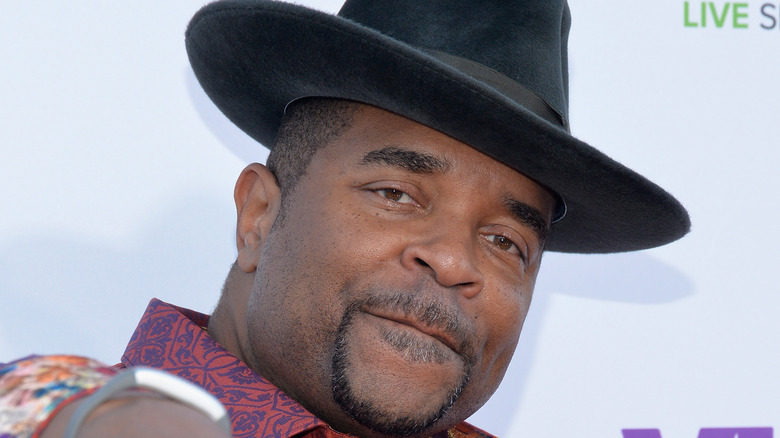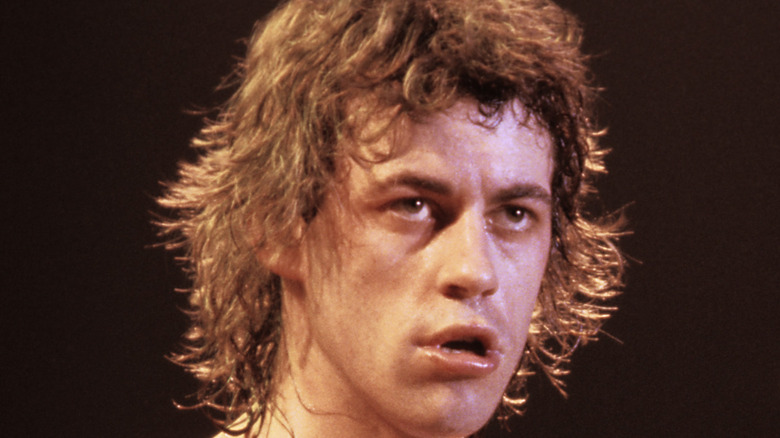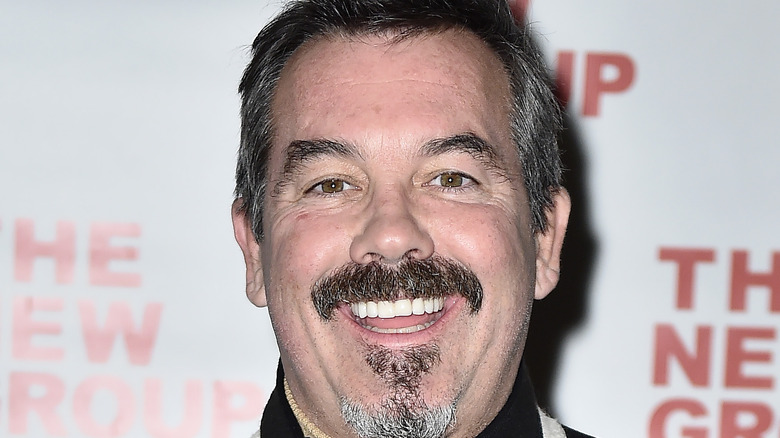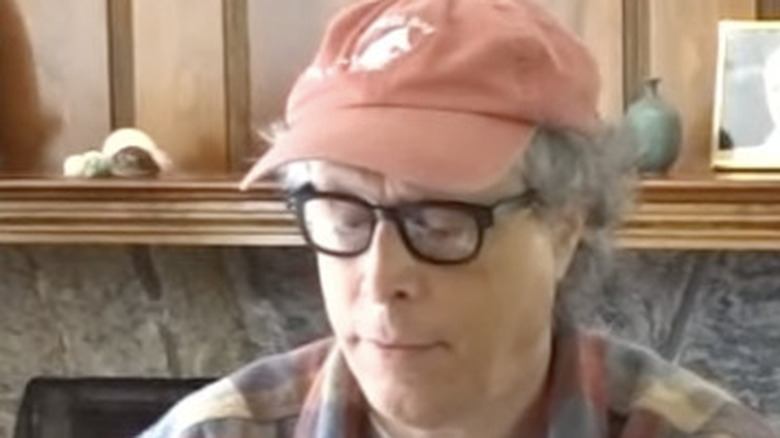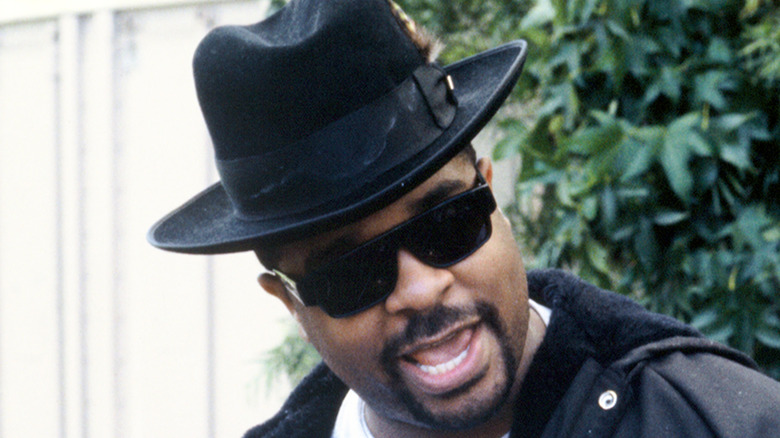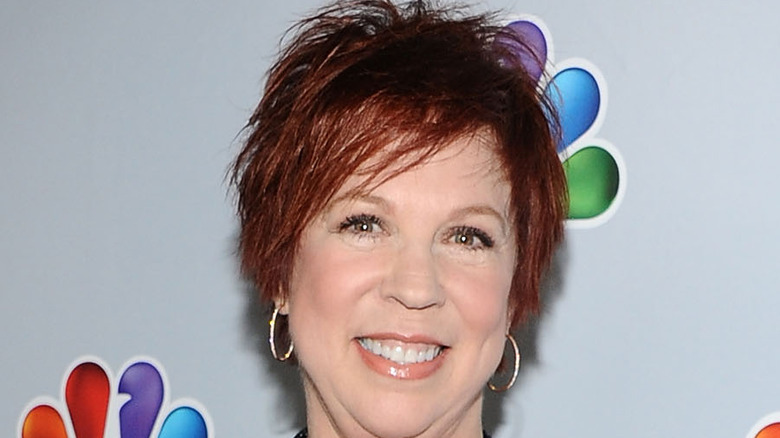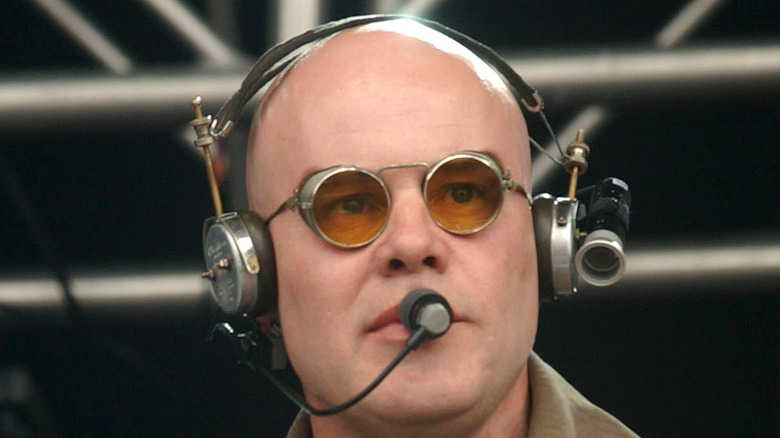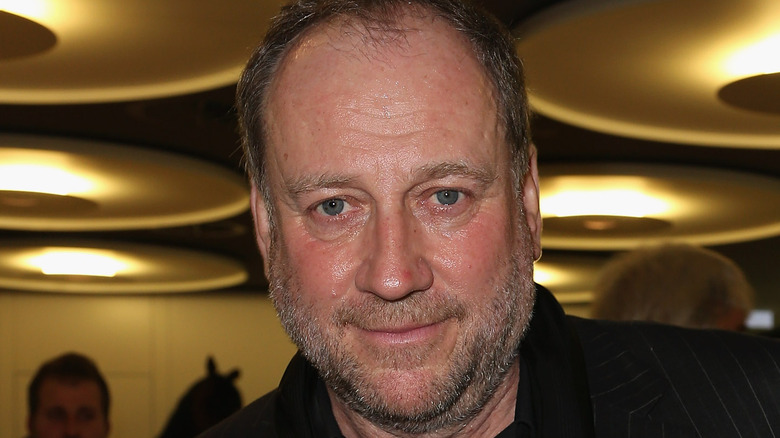One-Hit Wonders That Made Millions
Correction 07/05/22: A previous version of this article identified the Boomtown Rats as an English band. They are from Ireland, not England.
A downright miraculous series of events must occur for a musician to score a hit record. Not only do they have to write a song, but they compete with other talented people for the resources of a record company, who, if all goes to plan, generates enough airplay and attention that the tune catches on with the public and hits the charts. The musician is thus off and running, on their way to a lifetime of the world eagerly embracing and purchasing every tune they make from then on... or not. That first hit is the hardest, and for many, it's also the only one. Musicians are often fated to become a one-hit wonder, scoring high with a tune so iconic that they're never to remotely repeat its success.
But one hit is still a hit, and it can potentially earn a lot of money for its writers and performers. Or, that flash in the pan can get out of music with that proverbial bag of cash and turn it into more wealth in other areas. Here are some one-hit wonders who, in the end, wound up quite wealthy.
What's going on with the 4 Non Blondes' Linda Perry?
The early '90s are synonymous with grunge rock, feedback-heavy, down-tuned guitar-laden, punk-meets-metal with detached, ironic lyrics about dissatisfaction that came straight out of the Pacific Northwest thanks to bands like Nirvana, Pearl Jam, and Alice in Chains. In grunge's heyday, all of those bands sold millions of albums but didn't enjoy much lasting luck on the Hot 100, Billboard's mainstream pop singles chart, while the occasional, smoothly produced grunge-adjacent song could soar to the top. Case in point: "What's Up," a fuzzy guitar-driven, anthemic singalong by San Francisco band 4 Non Blondes. The group released exactly one album, 1992's "Bigger, Better, Faster, More!" and scored exactly one hit when "What's Up" reached No. 14 in 1993.
According to AllMusic, Perry left 4 Non Blondes during the recording of a never-finished second album, and after failing to gain traction with a solo career, focused on session work, operating her own label, and writing and producing songs for other musicians. In 2001, according to Rolling Stone, she wrote Christina Aguilera's "Beautiful" and Pink's "Get the Party Started" and quickly became one of the most sought-after collaborators and composers in the pop music industry. Perry made songs for Gwen Stefani, The Chicks, Alicia Keys, Weezer, Hole, Adele, and Dolly Parton, among others. All those songwriter royalties and producer fees add up; Celebrity Net Worth says Perry's accounts total $18 million.
Oh yeah, Yello definitely parlayed his one hit's proceeds into untold wealth
"Oh Yeah" is a quintessentially 1980s song, built almost entirely of samples, loops, drum machine blips, and synthesizer bloops. The lyric-light electro-pop classic appeared on the soundtracks of multiple high-profile '80s movies, including "The Secret of My Success," "She's Out of Control," "K9," and "Ferris Bueller's Day Off," the latter of which propelled "Oh Yeah" to No. 51 on the Billboard Hot 100 in 1986. This is the only time Swiss act Yello would appear on the mainstream American pop chart, despite an extensive discography of albums and dance hits.
Yello is a duo consisting of Boris Blank and Dieter Meier, the latter a man of many interests and talents, which include gambling at a professional level, playing for Switzerland's national golf team, and wisely investing the money he makes off of his musical projects and growing it exponentially. According to the Wall Street Journal, Meier took the royalties generated by his band's one and only smash hit and invested it into currency concerns and train companies. Meier made himself as rich as an act with a long string of well-known songs, investing his windfall and transforming it into a fortune of about $175 million.
Bob Geldof didn't like Mondays but likes the checks
In 1979, according to Good Housekeeping, 16-year-old Brenda Spencer aimed her rifle at Grover Cleveland Elementary School, across the street from her home in suburban San Diego, and opened fire at the children arriving for classes. When asked for a reason behind her deadly spree, Spencer bluntly stated, "I don't like Mondays. This livens up the day." Bob Geldof of the Irish band Boomtown Rats saw a news report with Spencer's quote. "It was about this event that I saw in America, this girl shooting her schoolmates and her teacher," he said. This inspired him to write "I Don't Like Mondays," a song that alludes to Spencer's crimes. The Boomtown Rats had many big hits in the U.K. both before and after "I Don't Like Mondays," not counting Geldof's creation of the cross-continentally popular charity single "Do They Know It's Christmas?", credited to Band Aid, but it represents the only time the band hit the American pop chart.
Because of the long-lasting U.K. success of Boomtown Rats and occasional acting work (he starred in "Pink Floyd: The Wall"), Geldof's stature and fortune expanded. He made some money during the dotcom boom of the early 2000s, according to Ireland's Independent, formed a TV production company (which he sold for millions), invested in start-up tech companies and real estate, and produced reality shows in which he had an ownership stake, notably the European hit "Castaway." Geldof's net worth: the equivalent of about $150 million.
Duncan Sheik went from barely breathing to being very rich
Duncan Sheik, a singer-songwriter of adult-oriented, chilled-out, modern rock, appeared on the scene in 1996 with his debut self-titled album and a leadoff single that would perform well in a variety of radio formats. The hypnotic, mid-tempo pop-rocker "Barely Breathing" was a top 20 hit on Billboard's Adult Contemporary chart as well as a No. 16 smash on the Hot 100. Subsequent singles flopped hard, with his 1998 "Great Expectations" soundtrack cut "Wishful Thinking" topping out at No. 3 on the sub-Hot 100 "Bubbling Under" chart.
When it became clear that the whole massive pop star thing wasn't going to work out, Sheik pivoted, using his talents and skills to make music in the potentially lucrative worlds of film and theater. Sheik composed the score for the films "The Cake Eaters," "Brother's Shadow," and "A Home at the End of the World," and in 2006, wrote and arranged the music for "Spring Awakening," a hit Broadway musical. Sheik won two Tony Awards for his work on the long-running, since revived, and touring show and went on to write both the music and lyrics for a stage adaptation of the book and film "American Psycho." All told, Sheik has a net worth of approximately $4 million, according to Celebrity Net Worth.
Cheers to you, Gary Portnoy
"Cheers" ranked as the most-watched show on TV in the 1990 to 1991 season, a remarkable climb from its status in its debut season in 1982 to 1983 as one of the least-watched programs. Nevertheless, in that lean infancy, "Cheers" won the Emmy for Outstanding Comedy Series and enjoyed critical acclaim. Applause Records released an extended version of the show's catchy, melancholy, piano-based theme song "Where Everybody Knows Your Name" as a single. Credited to performer and co-writer Gary Portnoy, the song was a very minor hit on the Billboard Hot 100, peaking at No. 83 but getting so much airplay on soft rock radio that it hit No. 28 on the Adult Contemporary chart.
Portnoy was a young songwriter without a lot of clout in the entertainment industry when he wrote and performed the "Cheers" theme in 1982, and according to Celebrity Net Worth, he had little choice but to sign over the publishing rights to the song to "Cheers" producer Paramount Pictures. "It was non-negotiable. 'Do you want the song on the show? Then we own the publishing,'" Portnoy said. Still, as the writer of the song, Portnoy earns half of all royalties generated every time the "Cheers" theme plays somewhere, not just on the radio but on TV. And "Cheers" was a massively successful show, running on NBC for 11 years with its reruns perpetually syndicated and streamed, meaning Portnoy has made multiple millions from just that one song.
Sir Mix-a-Lot's got stacks
At a time when most prominent rappers hailed from New York or Los Angeles, Sir Mix-A-Lot made a name for himself in the nascent Seattle scene, according to "The Billboard Book of Number 1 Hits," releasing low-fi singles on local label Nastymix in the late 1980s and early 1990s. "Beepers," "My Hooptie," "I Got Game," and "Posse on Broadway" reached low peaks on Billboard's R&B chart, but in 1992, Sir Mix-A-Lot would go all the way to No. 1 on the Hot 100 with a blunt, amusing call to arms about body positivity and the women he personally found attractive. "Baby Got Back," which begins with the line "I like big butts and I cannot lie," is a paean and tribute to curvy, larger-rear-ended women, left out of the thin-minded standard of beauty that dominated pop culture at the time.
A charged up and catchy song with singalong-worthy lyrics that makes people feel good about themselves meant "Baby Got Back" has lived an extended life, appearing on the soundtracks of dozens of movies and TV shows, and even commercials. As the primary writer and performer of the song, and the owner of its publishing rights, Sir Mix-A-Lot gets paid any time "Baby Got Back" gets used or heard, and it's generated a lot of income. "Tens of millions, I think would be low," the rapper told Vlad TV in 2017. "It's definitely made over $100 million."
The lights only went out on Vicki Lawrence's musical career
According to The Billboard Book of Number 1 Hits, Vicki Lawrence began her showbiz career somewhat accidentally. In the mid-1960s, she wrote a fan letter to Carol Burnett, mentioning that friends commented on how much she resembled the "Garry Moore Show" comedian. Burnett saw the letter, and they struck up a correspondence. In 1967, prior to the launch of "The Carol Burnett Show," Burnett's husband, producer Joe Hamilton, asked Lawrence to appear on the forthcoming series as Burnett's sister in a sketch. That led to a spot in the full-time cast of "The Carol Burnett Show," along with a side gig as a pop singer. In the early '70s, Lawrence recorded a Southern gothic murder-mystery country song called "The Night the Lights Went Out in Georgia," written by her husband, Bobby Russell. In April 1973, it hit No. 1 on the pop chart, heights Lawrence would never reach ever again.
Fortunately, Lawrence still had her day job on TV. She remained on "The Carol Burnett Show" until it ended its 11-season run in 1978 and then spent seven seasons on "Mama's Family" as Thelma Harper, the cantankerous matriarch of a dysfunctional Southern family. Reruns of both of Lawrence's TV hits became broadcasting mainstays, generating regular residual payments up to and after the actor hosted "Vicki!" a daytime TV talk show for two years. According to Celebrity Net Worth, Lawrence's assets total about $8 million.
Chamillionaire is now a multichamillionaire
According to AllMusic, the Houston rap scene had a major cultural moment in 2005 and 2006, with Mike Jones, Slim Thug, and Paul Wall all breaking out with major hit albums and singles. None was bigger, however, than Houston fixture Hakeem Seriki, a.k.a. "The Mixtape Messiah," a.k.a. Chamillionaire. After 2002's "Get Ya Mind Correct," a collaborative record with Wall, sold 100,000 copies, Chamillionaire unveiled a slew of mixtapes showing off his ability to sing his own hooks and took "Ridin'" all the way to No. 1.
That was Chamillionaire's one and only smash, but the proceeds seemingly set him up for life. Chamillionaire had an interest in emerging digital technologies when music was still his primary pursuit, attending tech conferences to get a handle on the financial future. According to Forbes, he was an early investor in Maker Studios, Cruise, Lyft, and Ring, all of which paid off after corporate acquisitions and IPOs. By 2019, Chamillionaire had made significant investments in more than 40 firms and launched a collaborative business app called Convoz, per HipHopDX. Celebrity Net Worth estimates the musician and entrepreneur has about $50 million altogether.
Science has been kind to Thomas Dolby
"She Blinded Me With Science" is a goofy, wryly humorous song comparing the giddy effect of crushes and love to willful scientific experimentation, occasionally interrupted by a man shouting "Science!" That's British TV science personality Magnus Pyke, not the song's primary artist Thomas Dolby, born Thomas Robertson. The musician assumed his stage name (via SongFacts) from the Dolby brand of high-end audio technology. Robertson was an aficionado of electronics and a tinkerer with equipment. The song appeared on his first album, 1982's "The Golden Age of Wireless," and was an early major synth-pop hit in the U.S., reaching a pop chart peak of No. 5. The artist would record several more albums into the 21st century, but he'd never have another hit single.
According to TheRichest, the artist Dolby has made a few million from his musical endeavors, particularly collaborating with others (he helped out on and earns royalties from top sellers like Foreigner's "4," Belinda Carlisle's "Heaven on Earth," and Def Leppard's "Pyromania"). Dolby also made a sizable fortune via his other career as a tech-savvy Silicon Valley maker. According to Engineering and Technology, he helped develop early downloadable music file formats and tiny music synthesizers which led to the tech that made musical ringtones possible. Nokia used the tech in its widely popular cell phones, with Dolby credited as a creator of the ubiquitous Nokia "waltz" ringtone. That's a major element in Dolby's estimated $45 million net worth.
Harold Faltermeyer copped a hit and made a fortune
German musician and composer Harold Faltermeyer was in high demand by movie producers in the 1980s. His sparse, syncopated, electronic music scores were very fashionable at the time, and Hollywood couldn't get enough. Faltermeyer delivered the musical underpinnings of "Fletch," "Top Gun," "The Running Man," "Tango and Cash," and most exceptionally, "Beverly Hills Cop." The action-comedy film, a starring vehicle for mega-popular star Eddie Murphy as fish-out-of-water detective Axel Foley, became the highest-grossing movie of 1984, and the public couldn't get enough related media. The soundtrack went to No. 1 on the Billboard album chart (pg. 34) and spawned hits like Patti LaBelle's "New Attitude," the Pointer Sisters' "Neutron Dance," Glenn Frey's "The Heat Is On," and surprisingly, "Axel F," the movie's theme song and repeated synthesizer-played musical motifs, collected into an instrumental track. "Axel F" went to No. 1 on the dance and adult contemporary charts and peaked at No. 3 on the pop chart, the only hit single of Faltermeyer's life.
All those soundtracks for big-time movies that racked up the blockbuster box office and video sales and which were often rerun on cable TV generated a lot of money for Faltermeyer. According to Celebrity Net Worth, the musician's holdings total $20 million.
A not-wealthy Gotye is somebody that we used to know
Belgium-born, Australia-raised artist Gotye (formerly Wouter De Backer, according to Interview) made a lot of music but only achieved international success with his fourth album, 2011's "Making Mirrors." He broke through commercially with the anguished, kiss-off of a break-up lament "Somebody That I Used to Know," featuring a counterpoint by New Zealand singer-songwriter Kimbra. It would still be the only hit for Gotye, who hasn't released a solo album in more than a decade, but what a hit it was. The quirky, understated tune hit No. 1 on Billboard's pop, adult contemporary, dance, and alternative rock charts, and the magazine proclaimed it the top single for the entire calendar year of 2012. Then Gotye went three-for-three at the 2013 Grammy Awards, winning Best Alternative Music Album, Best Pop Duo/Group Performance, and Record of the Year.
Gotye can probably comfortably live off of the proceeds of his one and only international super hit because it was such a phenomenal success. Celebrity Net Worth estimates he's got $10 million at his disposal, with most of that income derived from "Somebody That I Used to Know."
